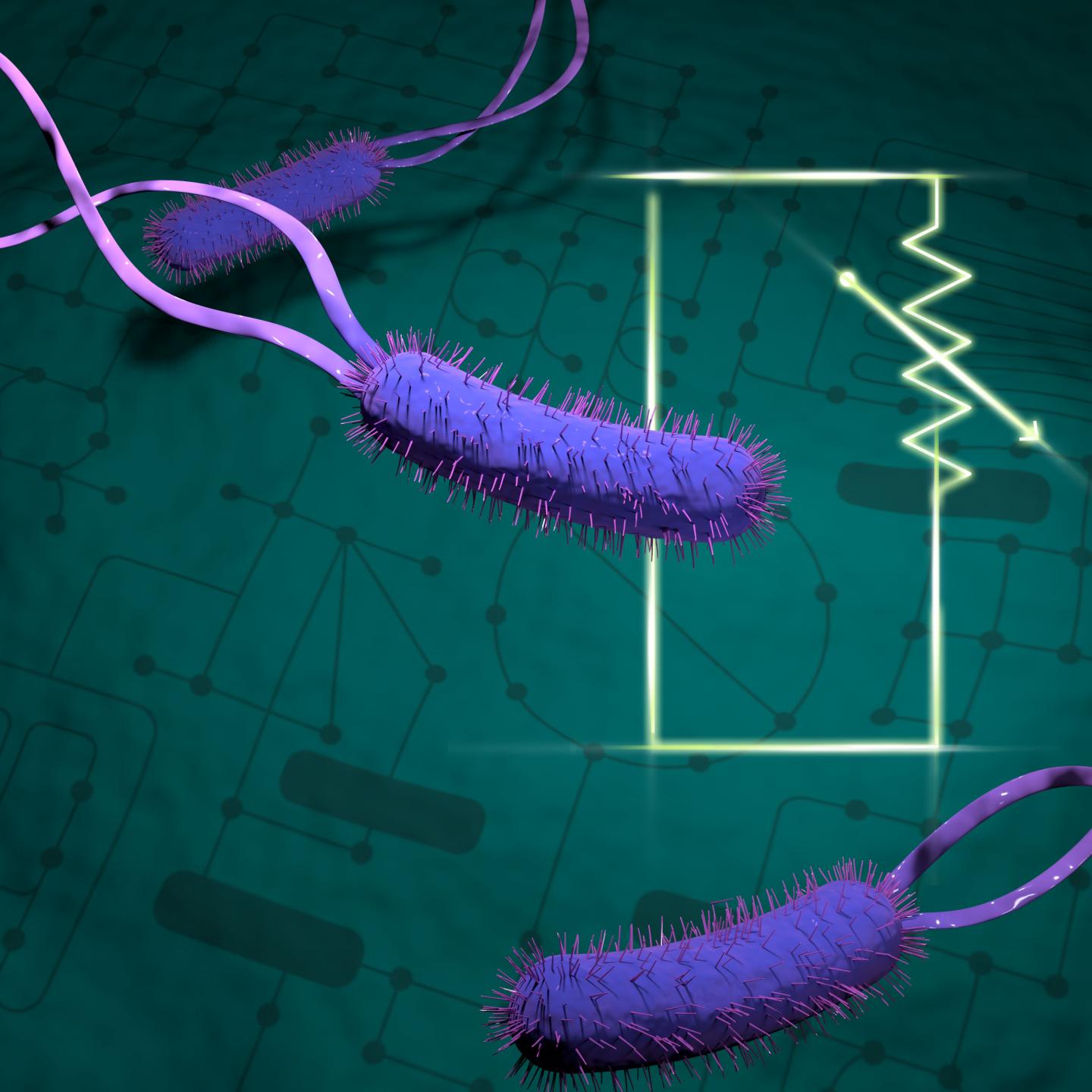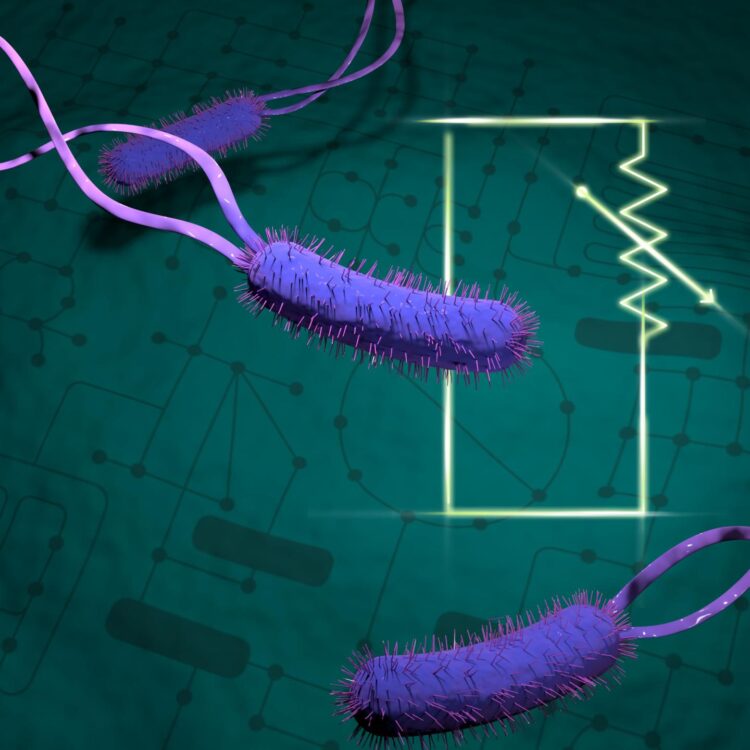Study reveals how cells control what they produce after eating

Credit: PNNL
A new study reveals how bacteria control the chemicals produced from consuming ‘food.’ The insight could lead to organisms that are more efficient at converting plants into biofuels.
The study, authored by scientists at UC Riverside and Pacific Northwest National Laboratory, has been published in the Journal of the Royal Society Interface.
In the article, the authors describe mathematical and computational modeling, artificial intelligence algorithms and experiments showing that cells have failsafe mechanisms preventing them from producing too many metabolic intermediates.
Metabolic intermediates are the chemicals that couple each reaction to one another in metabolism. Key to these control mechanisms are enzymes, which speed up chemical reactions involved in biological functions like growth and energy production.
“Cellular metabolism consists of a bunch of enzymes. When the cell encounters food, an enzyme breaks it down into a molecule that can be used by the next enzyme and the next, ultimately generating energy,” explained study co-author, UCR adjunct math professor and Pacific Northwest National Laboratory computational scientist William Cannon.
The enzymes cannot produce an excessive amount of metabolic intermediates. They produce an amount that is controlled by how much of that product is already present in the cell.
“This way the metabolite concentrations don’t get so high that the liquid inside the cell becomes thick and gooey like molasses, which could cause cell death,” Cannon said.
One of the barriers to creating biofuels that are cost competitive with petroleum is the inefficiency of converting plant material into ethanol. Typically, E. coli bacteria are engineered to break down lignin, the tough part of plant cell walls, so it can be fermented into fuel.
Mark Alber, study co-author and UCR distinguished math professor, said that the study is a part of the project to understand the ways bacteria and fungi work together to affect the roots of plants grown for biofuels.
“One of the problems with engineering bacteria for biofuels is that most of the time the process just makes the bacteria sick,” Cannon said. “We push them to overproduce proteins, and it becomes uncomfortable — they could die. What we learned in this research could help us engineer them more intelligently.”
Knowing which enzymes need to be prevented from overproducing can help scientists design cells that produce more of what they want and less of what they don’t.
The research employed mathematical control theory, which learns how systems control themselves, as well as machine learning to predict which enzymes needed to be controlled to prevent excessive buildup of metabolites.
While this study examined central metabolism, which generates the cell’s energy, going forward, Cannon said the research team would like to study other aspects of a cell’s metabolism, including secondary metabolism — how proteins and DNA are made — and interactions between cells.
“I’ve worked in a lab that did this kind of thing manually, and it took months to understand how one particular enzyme is regulated,” Cannon said. “Now, using these new methods, this can be done in a few days, which is extremely exciting.”
The U.S. Department of Energy, seeking to diversify the nation’s energy sources, funded this three-year research project with a $2.1 million grant.
The project is also a part of the broader initiatives under way in the newly established UCR Interdisciplinary Center for Quantitative Modeling in Biology.
Though this project focused on bacterial metabolism, the ability to learn how cells regulate and control themselves could also help develop new strategies for combatting diseases.
“We’re focused on bacteria, but these same biological mechanisms and modeling methods apply to human cells that have become dysregulated, which is what happens when a person has cancer,” Alber said. “If we really want to understand why a cell behaves the way it does, we have to understand this regulation.”
###
Media Contact
Jules Bernstein
[email protected]
Original Source
https:/
Related Journal Article
http://dx.





